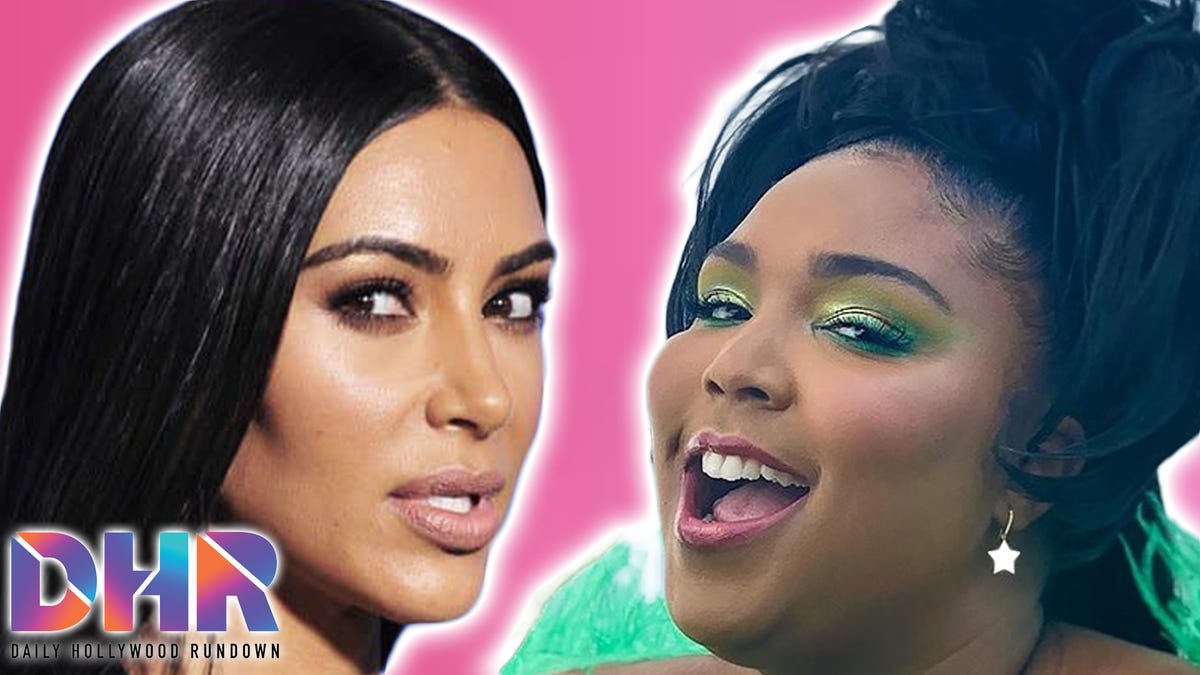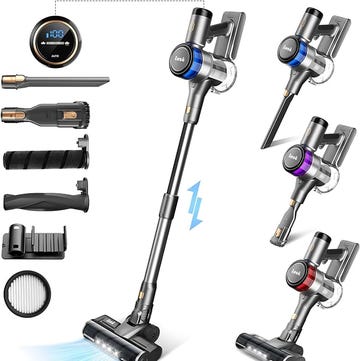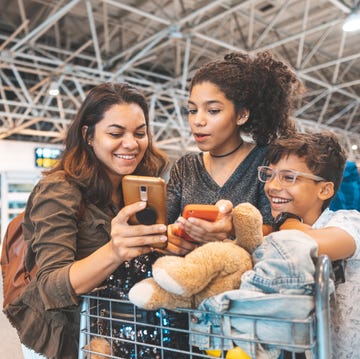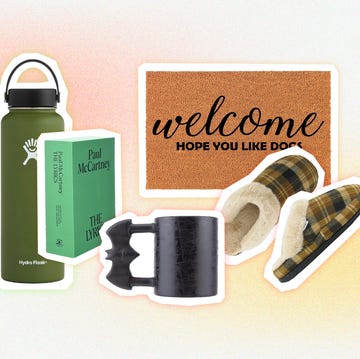I invited my close friends Aaron and Austin Rhodes (aka The Rhodes Bros) to co-write this column. Their powerful coming out video went viral in 2016 — with over 25 million views, it's one of the most-viewed coming out video on YouTube. By shining a light on all the emotions involved with coming out — and what an unexpectedly positive response can look like — they've helped LGBTQ people all over the world know that they are not alone!
For a community as diverse and dynamic as the LGBTQ community, there's one experience many of us have in common: coming out. It can be one of the most emotionally charged things you do in your entire life. You're not sure how a person will respond, and there's a mixture of so many different emotions going through you: excitement, fear, relief, anxiety, joy, and more.
We want to talk about coming out and raise awareness for National Coming Out Day (NCOD — October 11th!) because we want to live in a world where everyone feels supported and encouraged to be exactly who they are and pursue their dreams to the fullest. NCOD is not about pressuring people to come out — it's about shining a light on the conversation, showing people they're not alone, and encouraging people, when they're ready, to share their own stories to provide support and advice to those who are still in the proverbial closet.
When we were in the closet, we were obsessed with searching for every possible video, link, article, and show about coming out. We felt isolated and lonely and wanted to know what to expect, but the reality is that coming out is like a snowflake — no two experiences are the same, just as no two LGBTQ people's journeys are the same. We're going to focus on the certain themes and tips that apply to many people's stories and make them most anxious.
Check out our top ten tips here, and then watch our video (below and also on Raymond's channel)!
1. Come out to yourself
The most important person to come out to is yourself! As you start to discover that you feel different, you might experience feelings of shame, fear, or even self-hatred. Our community's ultimate goal is to help create a world where you don't experience any guilt, sadness, or fear, but unfortunately we still live in a society where some people spread hateful, anti-LGBTQ messages.
When we first started to explore our sexual orientation, it was hard for us to even say the words "I'm gay" out loud. Be patient and kind to yourself, and recognize that it's completely normal to go through your own process of self-discovery. Once you are able to look yourself in the mirror and say, without flinching, I'm gay. I'm bi. I'm trans. that's a huge milestone to celebrate!
2. Educate yourself
The Internet can become your best friend in helping you come out. There are so many wonderful resources to help you learn more about the LGBTQ community and connect with likeminded people, even if you feel like you're the only LGBTQ person in your community. (We're from small towns in Ohio, so we get it!).
Just by typing a few words into a search engine or social media site, you can hear LGBTQ people sharing their stories on YouTube. You can follow LGBTQ celebrities on social media. You can read through amazing resources from LGBTQ organizations like Human Rights Campaign, The Trevor Project, and GLSEN. You can scroll through LGBTQ tags on Tumblr and learn more about gender identity and expression, sexual orientation, and all the fluidity that exists across the broad LGBTQ spectrum.
Take advantage and explore! Soak up as much as you can. As you learn more about the LGBTQ community, you'll realize a few things: 1) You're not alone. 2) You're perfect the way you are, and there are people out there like you. 3) Being LGBTQ is AWESOME, and there's such a cool, fun, diverse community out there waiting for you to join in.
3. Choose an ally to confide in
As you consider coming out to another person, think about what an honor it is for them to be the first person you share something so precious with. Ask yourself who'd be the most supportive, kind, and helpful ally in your community. Maybe it's a teacher, guidance counselor, older sibling, LGBTQ peer, Gay-Straight Alliance (GSA) leader, best friend, or cousin. It doesn't matter who it is, as long as you trust them and feel confident they'll react positively to your coming out news. There are many ways you can "test the waters" to see if someone would make a good ally: You could ask them about their thoughts on same-sex marriage, LGBTQ celebs, people in your community who identify as LGBTQ, or books/movies/TV shows that shine a spotlight on the LGBTQ community (like our fave, I Am Jazz). If the person speaks in a supportive, well-informed way about the LGBTQ community, it's likely that they'll also support YOU when you're ready to come out them. Your ally should be someone who loves and encourages you, who you feel like you can be completely yourself around. Your ally will then be there for you as you embark on any difficult coming out conversations, and they can check in on you to make sure you're in good spirits and taking care of yourself! Be open and honest with the allies you trust. Talking about your feelings helps!
Once you've come out to your ally (or even better, allies!) you can finally have all those authentic conversations about your hopes, dreams, and fears with another person. Sharing your truth will build your confidence in expressing who you are.
4. Anticipate questions, roadblocks, and challenges
If you're scared to come out to a parent or friend, ask yourself why. Have they said homophobic things in the past? Are they having trouble reconciling supporting the LGBTQ community with their religious beliefs? Have they had any LGBTQ friends or exposure to the community? Do they just not seem comfortable with gay or trans people?
Anytime you feel yourself becoming anxious, try to refocus that energy into tackling all the issues that are making you feel nervous in the first place.
Brainstorm a list of all the questions you think your friend or parent might ask you if you come out, and then think about how you'd like to respond to each. Coming out is such an emotional moment that it's helpful to reflect in advance. You could also write out all your thoughts to share with the person, if that makes you feel more prepared in expressing yourself and how you feel.
Put together a list of resources to share right after you come out: books, brochures, pamphlets, YouTube videos, and information about local resource centers and support groups. Others will likely want to explore more information about the LGBTQ community as they process your coming out, so you can help guide them to the right information.
Think about the best case scenario (immediate acceptance and support) all the way to the worst case scenario (being kicked out of your home or community — so awful, we know, but more on that below) and try to assess the likelihood and what you would do in these different scenarios. Being prepared will help assure you that you can handle any outcome of your conversations.
5. Create a safety plan
We don't want to scare you, but the reality is that coming out can be an emotionally charged experience, and you can never fully predict how someone will react. Sometimes people will surprise you with their immediate love and support — and sometimes people who you assume will be supportive may not be, especially in the beginning.
Your safety, health, and wellbeing is the most important consideration of your coming out process, so make a plan before you come out of how you might deal with a worst case scenario. For example, if you were kicked out of your home, or cut off from your allowance and money, what would you do?
Talk to your trusted allies to come up with a contingency plan of where you could go. There are youth shelters, scholarships for LGBTQ students who are cut off from resources, and other programs to help you feel safe and supported. Research what's available in your community.
If you think you're at high risk of being kicked out of your home, subjected to violence, or cut off from important resources because you come out, think very carefully about whether you want to come out now or wait until you are in a more stable, safe, autonomous environment. Your safety and wellbeing should be the TOP consideration. Reach out to allies, trusted adults, and community resources to brainstorm how you can find yourself in a safer, more accepting, and inclusive environment if this is a concern for you.
6. Figure out the logistics of your first conversation
Anticipate all the logistics of your coming out process: Do you want to tell the person at home or in a public space? In person or through a letter, e-mail, phone call, or video? With an ally at your side or by yourself? There is no "right" way to come out — it's all about creating an environment where both you and the other person will feel at ease to have an open, honest conversation.
In addition to the location, think about timing and the other person's state of mind. Ideally, you want the person to be relaxed so that they can focus on processing the information and have an open conversation with you. Try to avoid coming out to someone when they're stressed, busy, or doing something that demands their full attention, like driving.
7. Come out!
The moment is finally here! First, pat yourself on the back — coming out takes a lot of courage. Before you take a deep breath and say those magic words, remind yourself that you ARE worthy of love and support. Write yourself a positive note before you enter the conversation that you can read afterwards, regardless of how everything goes.
You may be surprised by people's reactions, but know that often, while hurtful things may be said in the heat of the moment, negative reactions are often temporary. Think about your own journey to self-acceptance, to being able to say out loud that you're gay/bi/trans/queer. It likely involved a process of you exploring your own identity, so allow for that same opportunity for the person you just told.
When having these conversations, speak from the heart and try to come from a place of compassion, kindness, and understanding. Be open to their questions. It will become clear if the person is coming from a place of wanting to help and understand, or hurt and judge. Let them know how their words and thoughts impact you and don't be afraid to walk away from a conversation if you feel unsafe.
8. Connect with resources and support
As you start to come out and be more visible, reach out and connect to resources and support in your community — maybe it's attending a GSA meeting at your school or participating in activities at your nearest LGBTQ center. Building friendships and roots within the community gives you a network of support while you're navigating all of these coming out conversations.
9. Be nice to yourself
Among many other things, coming out can be exhausting and stressful, so please be kind, compassionate, and gentle with yourself. Make a list of all the things you love to do (maybe it's going for a run, listening to music, hanging with your dog...) and carve out time to do them! Taking care of yourself is crucial to keep you feeling grounded and optimistic for the future.
10. Don't forget...
As you check everything off this list, remember: You are a strong and valuable person who deserves love, respect, happiness, success, and support for being who exactly who you are. We know it's hard, but try not to cave into pressures telling you to be any different than who you know you are inside. You WILL find a brilliant community of people who love and support you just the way you are, even if you don't see them right now. If you're feeling lonely, remember that there are at least three people out there who are rooting for you and want you to be happy! Their names are Raymond, Aaron, and Austin.
Good luck — we're all sending lots of hugs! xoxo
And remember you can get in touch with me on social media anytime (@raymondbraun) with questions, ideas, or feedback for future columns!
[youtube ]https://www.youtube.com/watch?v=HJkx_-Av4jg&feature=youtu.be[/youtube]AMAZING RESOURCES
Coming Out As You: The Guide | The Trevor Project
Human Rights Campaign Coming Out Center
Find your nearest LGBTQ community center, courtesy of CenterLink
**If you are a young LGBTQ person in crisis, feeling suicidal, or in need of a safe and judgment-free place to talk, call the Trevor Lifeline now at 866-488-7386. Visit http://www.thetrevorproject.org/ for more resources.**












